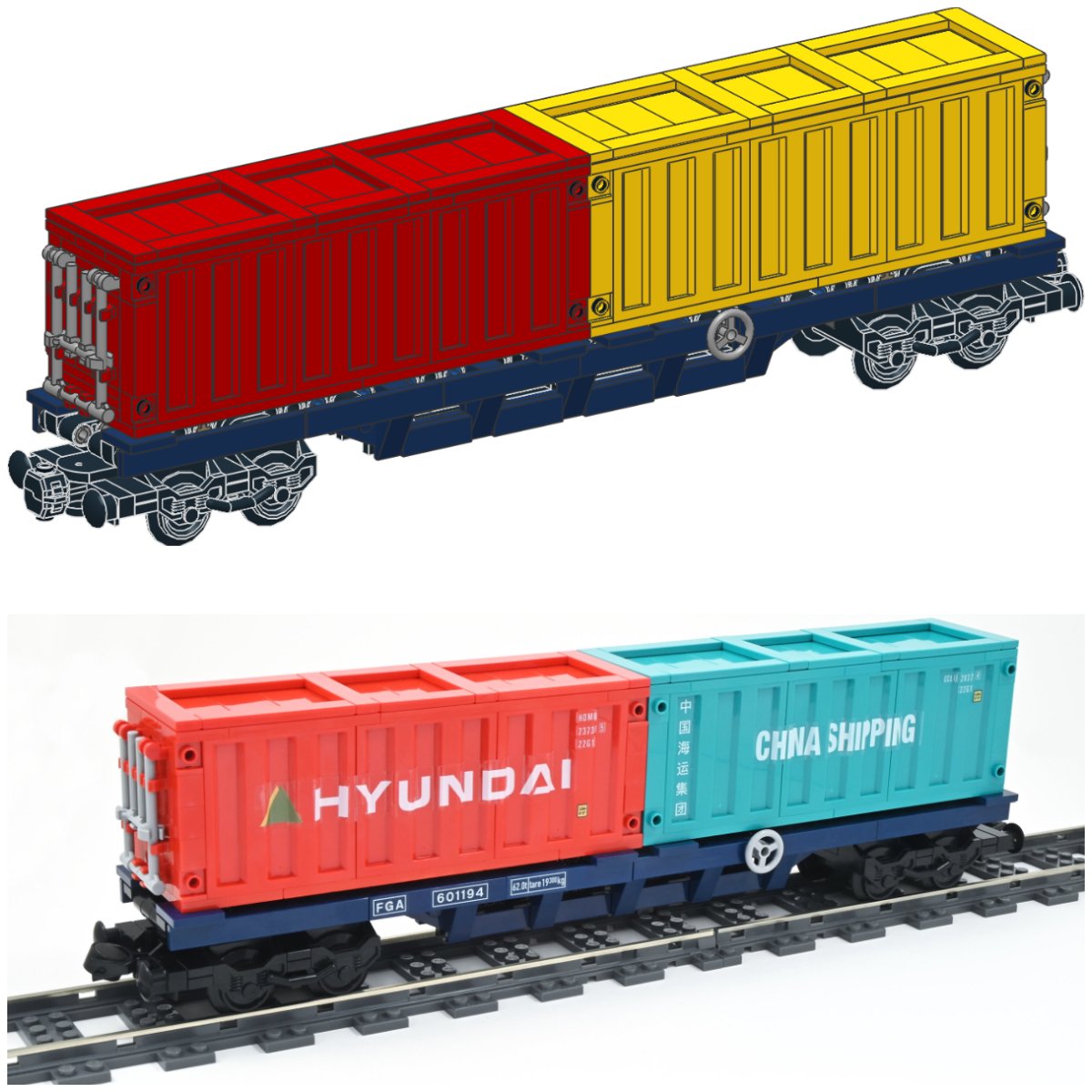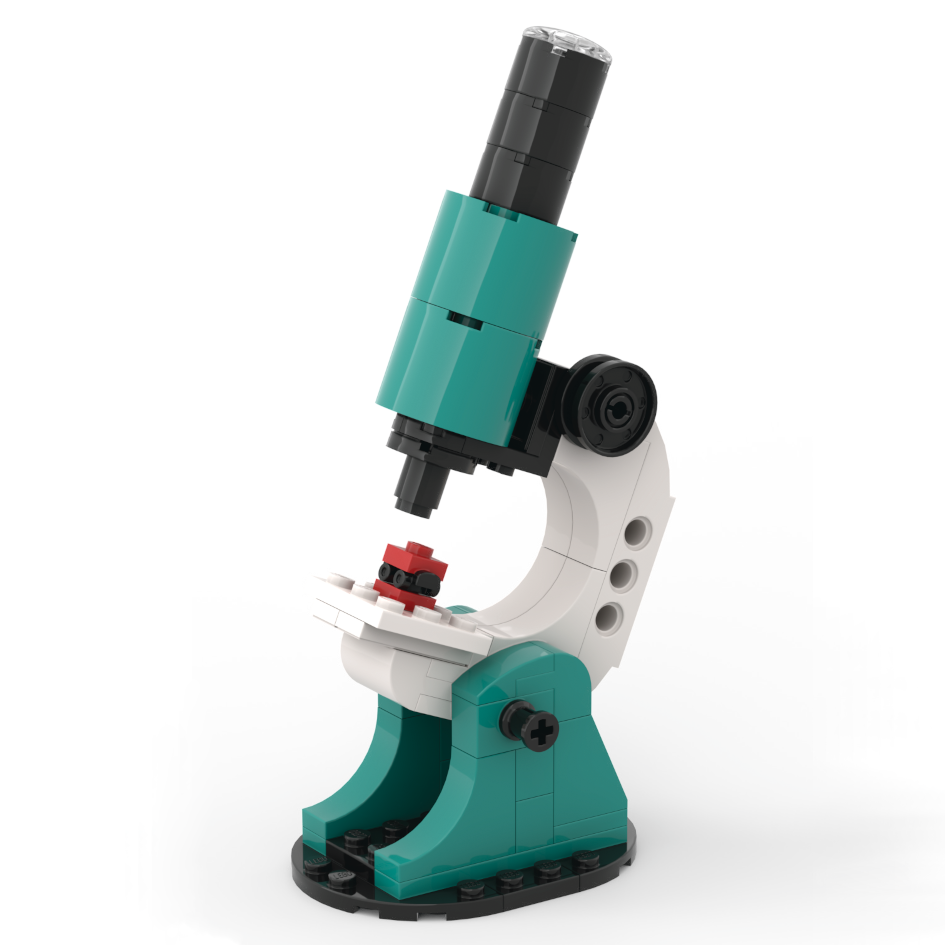How To Make a DIY LEGO Brick Sifter
/Is it really possible to completely catch up on sorting all your loose LEGO brick? Surely some reach this achievement! I at least tell myself this, hoping to stay motivated and get my collection to that point one day. But is there a way to sort faster? Perhaps it is time to sift instead of sort!
Image via Brickfanatics
For this article’s purpose I won’t be touching upon the actual various methods of sorting parts, as that has been covered many times before. Instead, I will take you on the journey of experimentation in making my own part sifter! I’ve had the idea to make one for well over a year, and finally used this article to motivate myself in getting it done (mostly!).
Colander of Reasons
LEGO 81081 Sort & Store - Image via Eurobricks
Why make my own LEGO sifter, you ask? Why create my own solution when a multitude of premade options are available to purchase? I’ll answer that in a second.
As a quick side note, since I have been looking to make this for well over a year, I’ve also researched premade options. And it does seem there has been a very large increase in the number of options you can buy within that past year! Just search for “LEGO sifter or sorter” and you will find tons of results.
My reasons for making a DIY LEGO sifter are fairly simple. I don’t buy loose bulk or need to sort through a massive amount. This is all about speeding up the process of breaking down sets and MOCs and getting the parts put away—for the sake of being organized! Plus, it is a fun challenge and always good to be resourceful when possible. Because of this I had a few criteria:
The project needed to be as cost-effective as possible.
The device should be fairly compact and “nest” to be stored.
It should be designed to my exact use case (good news: I have a background in product design!).
Let’s Begin
First we must find the right container to use, both in terms of the size vs cost, but also the right material. As mentioned above, I wanted these containers to nest, meaning they sit inside of one another to save space.
I found these at target in the $1 section near the entrance
I happened to find these plastic containers one day at Target in the $1 section near the entrance. They were only $1.50 each, so i bought four. So far we have spent $6. At the time of writing, I don’t believe they are available anymore. However, you can find a very comparable bin in their storage section for shoes which is also currently priced at $1.50. I’m sure other stores have similar deals.
Important Note!
Whatever container you pick, make sure to look for a marking somewhere on the labeling or bottom of the container that indicates it is PP (recycle number 5) or PE (recycle number 2). Here is a picture of waht to AVOID:
An example of the material to avoid!
If the plastic material is crystal clear like the image above, do not use it. Although it is possible to drill through with the right methods, it is much more likely it will greatly crack or even shatter if you use it. Safety first!
hole size templates
Next, I needed to determine hole sizes for sifting parts. As a bit of a cheat, I did reference Petesquared’s free plans you can download to get an idea. But I did also measure some LEGO parts to suit my specific needs.
I settled on the largest hole being 1.125 inches which is slightly smaller than a 4-stud diameter part (approximately 1.25 inches). I really didn’t see a need to have an additional size above that. Parts that size and above are really quick to sort through. For the smallest size I chose 0.5 inches which is slightly smaller than a 2-stud diameter part (approximately 0.625 inches). Having these two sizes was good enough for me to get started and check the results. The hole sizes were also limited to the tools I had on hand.
I made some quick hole templates in Illustrator that fit the bottom of my containers. You don’t have to do this, but for the sake of my OCD, I could not bare to go in without a plan!
Time For Action
Drilling the 1.125” holes
I used Forstner bits to drill the holes, since those leave the cleanest cut. However, they can get pricey if you don’t have them already. I have seen examples of using spade bits, which will work, but it will be a pretty rough cut. I did not have the 1.125 inch size and had to buy one. Luckily found one on Amazon for $11. (Our total budget for this project is now $17).
I taped my template to the bottom of the container so it would not get sucked up by the drill bit. And then I supported the bin with a scrap piece of wood and started drilling.
Me being impatient ;)
It’s plastic: it cuts mostly fast and easy. But don’t do what I did which is be impatient and try to rush it—that leads to several areas cracking. If you take your time you should have no issues! We’ll clean up these edges a bit later.
Drillig the 0.5” size
The smaller size drilled even easier—and mostly clean with only a few minimal cracks here and there. (Again I could have gone a bit slower.) The larger hole I just closed off with tape later.
Because the edges were a little ragged and to prevent any snags, I cleaned up the cut edges of both bins with a deburring tool which I also had on hand. You can fin these pretty cheap on Amazon or local hardware store in the metal pipe section. It’s very fast and easy to clean up the edges this way.
Deburring tool and bin before cleanup
The edges post cleanup
Test Sift
After wiping down the bins to remove any dust or remaining plastic bits, I put my new LEGO sifter to the test! I grabbed the nearest bin of loose parts I could find and dumped a couple of large scoops in. As I shook the containewrs, the loose LEGO sifted through the larger holes, then into the smaller, then finally into a bin underneath them.
It worked! This sifting proess allowed separation into three groupings for easier sorting after, and it worked mostly how I wanted.
In Summary
My DIY LEGO sifter was definitely a success based upon my goal, and I can already see it is going to help me sort that much faster. I found the low cost bins that nest, and I was able to customize it to suit my specific needs.
In total, I spent $17. The bins were $6, and the drill bit I didn’t have was $11. If I didn’t have the 0.5” drill bit, that would have cost an additional $8 for a total of $25. That is still below the cost of buying a premade version—but with the right tools the cost could have been even lower.
I do plan on adding another sifting layer between the two I made based upon the results. I’m going to make those holes 0.75 inches which is just below the diameter of a 3-stud part. Plus, I already have that size of drill bit! If I had to buy it, that drill bit would add roughly $9 onto the cost for a total of $34. At that cost you may want to evaluate not going through this process and buying a pre-made sifter instead. I now have the tools to make another sifter at just the cost of the containers.
I thoroughly enjoyed the process and the end result, especially when it makes sorting LEGO easier and more fun! Do you have any desire to make your own part sifter? Let us know your experiences with sifting devices for sorting bricks.
Best of BrickNerd - Article originally published March 28, 2024.
How do you sift your bricks? Let us know in the comments below!
Do you want to help BrickNerd continue publishing articles like this one? Become a top patron like Marc & Liz Puleo, Paige Mueller, Rob Klingberg from Brickstuff, John & Joshua Hanlon from Beyond the Brick, Megan Lum, Andy Price, Lukas Kurth from StoneWars, Wayne Tyler, Dan Church, and Roxanne Baxter to show your support, get early access, exclusive swag and more.






























